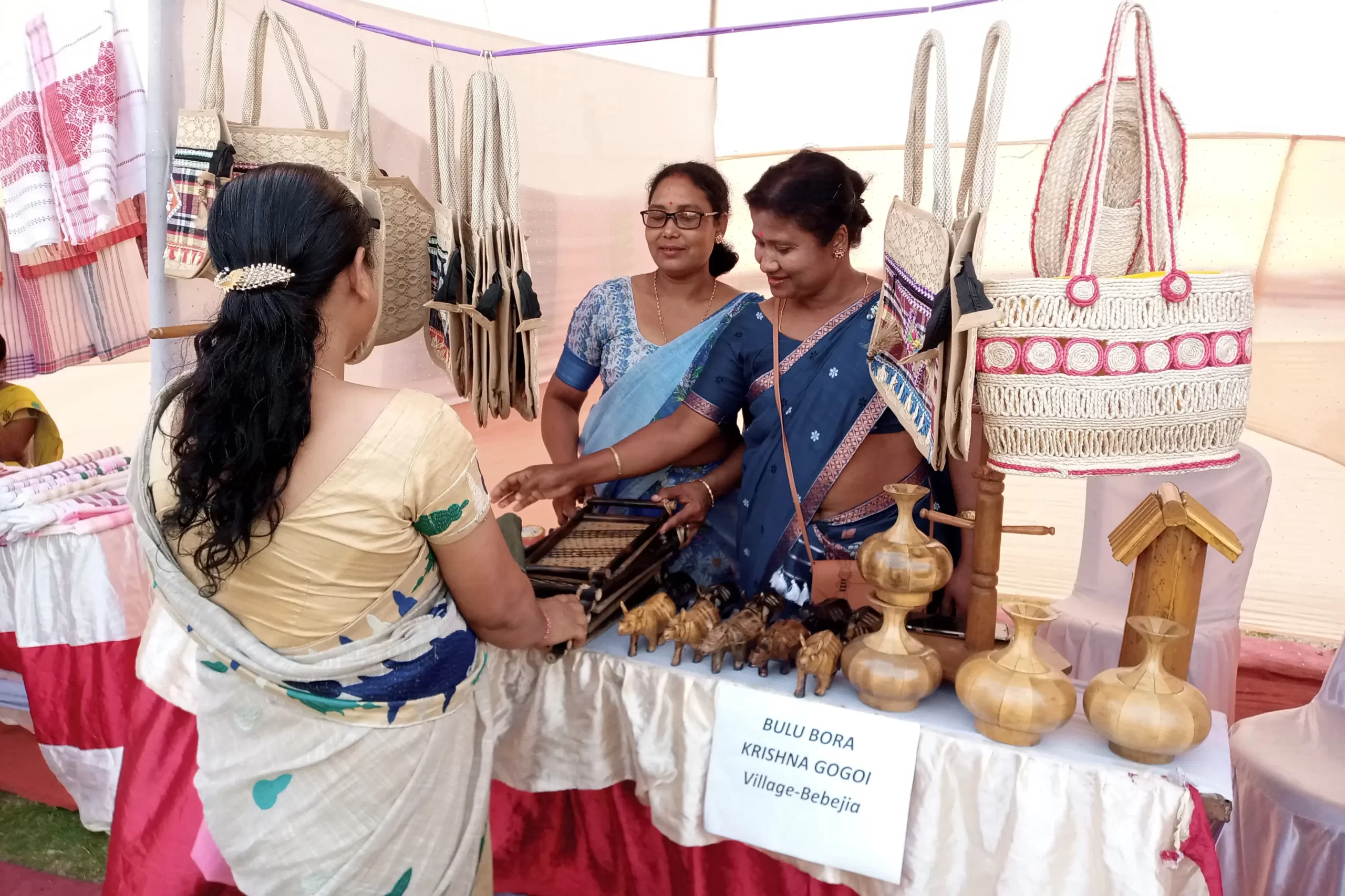Weaving Dreams into Reality

Thirty-six-year-old Bulu Borah lives in Titabar Bebejia Village in Jorhat, Assam. According to Bulu, “I wanted to earn an income to make ends meet for my family. My husband’s income was not enough for our son and us. I found out about the DISHA Project and excitedly took their Entrepreneurship Development Training.” Bulu already knew basic weaving techniques from before, but had never used it for earning a livelihood.
“A three-day long Entrepreneurship Development Training showed me all sorts of business ideas I had never thought of before. I wanted to start my own business, but I had no money,” reflects Bulu. Access to finance is a crucial aspect of ecosystem development for women entrepreneurship. Many rural Indian women lack the financial literacy required to access traditional forms of financing. By offering financial literacy training and facilitating access to government schemes and grants, women entrepreneurs can overcome these barriers and realise their business aspirations. Capacity building and skill development are also vital components of ecosystem development. Many women entrepreneurs in rural India need more skills and knowledge to run a successful business. Training programmes, workshops and mentorship opportunities can empower women to build the confidence and expertise needed to navigate the challenges of entrepreneurship.
The DISHA Project team saw her determination and facilitated her induction into a twelve-day training programme course to learn to make products from banana fibre. This training was supported by Khadi and Village Industries Commission and conducted by another NGO. This was the turning point in Bulu’s life trajectory. “I not only learnt a new skill, but I also got Rs 2,400 as a stipend during the training. Besides the monetary benefit, it showed me that my skills were valuable. This gave me the confidence I hadn’t felt in years,” beams Bulu. She diligently practiced what she had learnt for getting faster and better at making banana fibre craft products.
Banana fibre is eco-friendly as it is biodegradable, recyclable and derived from the pseudo-stems of banana plants, which are typically discarded as agricultural waste. The innovative utilisation of banana waste in various industries presents a transformative opportunity for sustainable manufacturing. This shift not only addresses environmental concerns but also opens up new avenues for economic growth and job creation. By repurposing agricultural residues like banana waste, we pave the way for a greener, more prosperous future.

In order to foster networking opportunities, the DISHA Project regularly organises skill fairs to provide a platform for entrepreneurs to showcase their products, while also providing insights into market strategies and techniques for market linkages. At one such fair in Jorhat, Bulu got an opportunity to present her work. Bulu recounts with pride, “I was so nervous showing my first creation, but I sold it for Rs 2,200! It proved I could do this well, that I could build a better future for my family!”
Eventually, Bulu was asked to train other potential women entrepreneurs from the DISHA Project and share her knowledge with others. She earned Rs 13,500 as her first stint as a trainer. “This was monumental for me, to be financially independent and furthermore to have the ability of helping others in finding hope like I did,” Bulu shares self-assuredly. Today, Bulu is a craftswoman, a trainer who is earning and contributing to her family and dreams of a brighter future for her son. “The DISHA Project has transformed my life. It didn’t just teach me skills, it showed me a path to a better life, a life where I’m not only surviving, but thriving.” Being resourceful and farsighted, Bulu saved enough money and recently has opened her own shop near her home selling craft and utility products made out of banana fibre.
